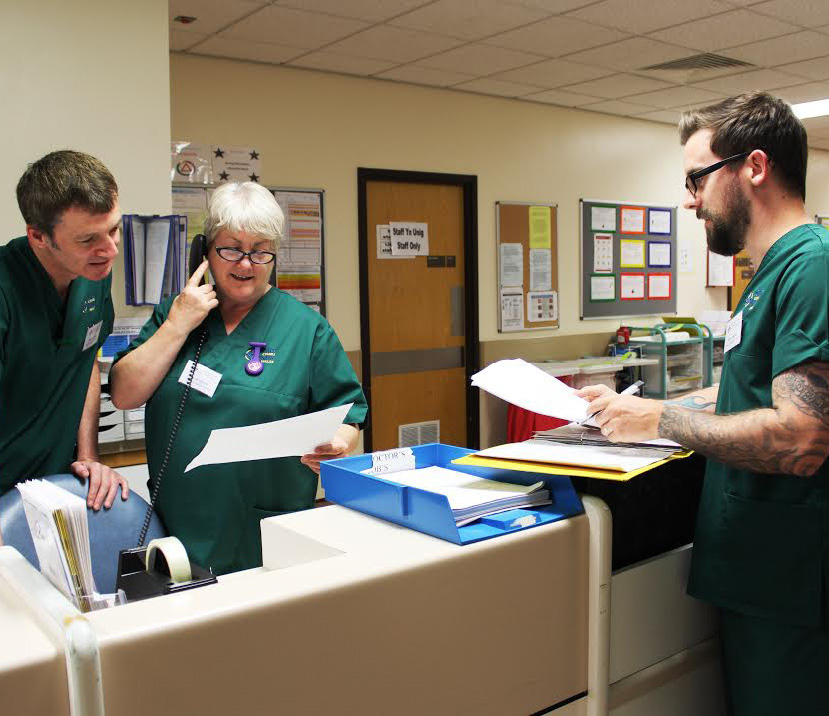A TEAM of frailty specialists working at Prince Philip Hospital have given an insight into their working life as part of what is believed to be the first such dedicated team in Wales.
The hospital is leading the way in supporting patients of any age who are too frail to move, by putting together a top team of specialists to manage and care for them.
Focussing on the three key areas of hydration, nutrition and rehabilitation, the team – which has been in place since December – provides a bespoke patient-centred approach which is already having a positive impact on how long patients need to stay in hospital, with many returning home to their families sooner than before.
The team consists of Frailty Support Workers Sarah Dunne, Jason Jenkins and Andrew Jones, and is supported by Consultant Physician Dr Andrew Haden, Ward Sister Rhian Lewis, Senior Nurse Manager Mandy Brain and Ward Sister Debbie Tucker.
Dr Haden said: “Having a dedicated frailty team in place is huge for us, because the way we currently practice emergency medicine doesn’t always suit frail patients; but what we have found is that frailty patients can fall into the gaps between those different disciplines.
“You have to start getting someone on their feet in the first 24 hours or you’re looking at many extra days in hospital. We also know that many older people or frail people struggle to eat, particularly in hospital, as big meals often don’t suit patients who are ill.
“So, by having a more flexible role, where people are fed, mobilised and rehabilitated when it suits them, we can ensure that patients are managed individually, which is actually cutting down on the amount of time they need to stay in hospital.
“It’s good for morale as well – when you create a role where you see people actually getting better, you see people gaining weight and then going home, suddenly everything changes.
“The communication is much better too . From my point of view, I know that there are people who are going to know what I want to know – what can this patient do, what were they doing before they came in, how’s the nutrition going, that sort of thing.
“I believe that this should be the way forward for nursing care in the 21st Century.” Frailty support worker Jason Jenkins added: “What we’ve found is that frailty scores are improving – the lower the frailty score, the better.
“People are getting out quicker, the bed situation is improving. We have a ward of 24 but the amount of frailty patients we have can differ; some people might have chronic illnesses or lifelong disabilities which might rule out rehab factors.
“Also, you don’t have to be elderly to be frail – we’ve had patients in their 60s and younger, such as young oncology patients who have been through chemotherapy – these are the patients who need a lot of intervention, especially nutritionally.”
Andrew Jones added: “Seeing the patients getting better and seeing the figures is the most rewarding thing about the job. When you’ve got someone coming in who’s saying ‘I wish I could go out to the garden, I wish I could go out to the cafe with my family,’ and then seeing them on their feet and walking out – it makes such a difference. That’s a really good feeling.”


















Add Comment